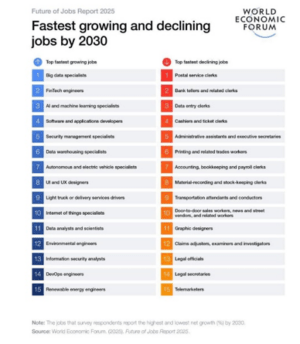By Alain GBEASOR
As Ghana transitions into a new era, the fintech industry stands poised on the brink of transformation.
With an eye toward innovation and progress, the plan of a US$50 million Fintech Growth Fund by President John Dramani Mahama has sent ripples of optimism throughout the sector. This initiative is not just a financial lifeline; it represents a strategic pivot that could redefine the landscape of financial services in the country.
The significance of the Fintech Growth Fund
At the heart of the fintech ecosystem is the challenge of access to funding. Many startups grapple with limited opportunities to secure the capital necessary to innovate and scale their operations.
The establishment of the Fintech Growth Fund aims to alleviate this hurdle, providing much-needed financial backing to emerging businesses. This fund will empower innovators to develop homegrown solutions that enhance financial inclusion and contribute to economic growth, which is essential for a country on the path to becoming a leading fintech hub in Africa.
Ghana’s declining fintech appeal
Ghana, once a poster child for fintech innovation and investment in Africa, has seen its attractiveness wane in recent years. This decline can be attributed to a series of challenges, including a poor macroeconomic outlook, high foreign exchange losses, and an over-regulated environment, particularly due to taxes like the controversial e-levy.
Previously, Ghanaian fintechs attracted hundreds of millions in USD investments annually, positioning the country alongside industry leaders like Nigeria, Kenya, and Egypt.

However, Ghana now finds itself competing with countries like Tanzania and Benin for investment, reflecting a chilling slowdown in appetite for local fintech. A significant factor in this downturn is the underdevelopment of local angel investors and seed funding, which typically serve as the first line of capital to facilitate regulatory compliance and the launch of Minimum Viable Products (MVPs). This has exacerbated the challenges faced by many fintech companies attempting to thrive in an increasingly competitive landscape.
The multi-dimensional impact of the fund
- Funding accessibility
The infusion of US$50 million into Ghana’s fintech sector will enhance the venture capital landscape. By providing startups the financial resources needed for research, development, and commercialization of their products, this fund could spur the creation of cutting-edge solutions tailored to the local market. Startups can focus on solving pressing issues such as unbanked populations, inefficient payment systems, and low financial literacy.
- Capacity development
Beyond mere funding, the initiative anticipates capacity-building programs that equip entrepreneurs with vital skills. These training modules will address essential areas such as compliance, operational efficiency, and market strategy, ensuring that startups are not just funded but are effectively positioned for sustainable growth.
- Sandboxing for innovation
A regulatory sandbox allows fintech companies to pilot their innovations in a controlled environment. By reducing the regulatory burden during the testing phase, startups can fine-tune their offerings and demonstrate viability before scaling operations. This approach fosters creativity and ensures that new solutions are both practical and compliant.
- Collaborative stakeholder engagement
A key component for the successful implementation of the fund lies in engaging stakeholders across both public and private sectors. The Ghana FinTech and Payments Association (GFPA) emphasizes that collaborative policymaking is essential in crafting regulations tailored to industry needs.
Developing trust and cooperation between stakeholders will create a robust infrastructure that supports innovation and attracts additional investment, enhancing the environment for fintech in Ghana.
Prospects for unicorns and continental impact
As we look toward the future, the fintech sector in Ghana has immense potential not only for the local economy but also for the broader African Continental Free Trade Area (AfCFTA). With McKinsey & Company estimating that Ghana’s fintech sector could generate US$18.6 billion in revenue by 2025, strategic initiatives such as the Fintech Growth Fund could lead to the emergence of homegrown unicorns. These startups have the potential to extend their influence within regional markets, thus fostering broader economic development.
Creating inclusive financial models
Financial inclusion remains a pressing challenge in Ghana, where a significant portion of the population is unbanked or underbanked. Leveraging technologies such as smart tech, health tech, and data analytics can facilitate innovative financial solutions tailored to the unique needs of various demographics. For example, mobile banking applications that cater to rural populations can bridge the existing gap in access to financial services, establishing a more inclusive economy.
Conclusion
The launch of the US$50 million Fintech Growth Fund is a transformative step for Ghana’s fintech ecosystem. By prioritizing funding accessibility, capacity development, sandboxing for innovation, and stakeholder collaboration, Ghana is positioning itself to lead in the fintech arena across Africa.

The initiative from the new government carries the promise of rekindling Ghana’s status as a favored destination for fintech investment, nurturing a culture of innovation, and fostering inclusivity in the financial sector.
As we embark on this journey of technological and financial advancement, it is imperative that we remain committed to fostering an ecosystem that champions innovation while prioritizing the inclusion of all Ghanaians in the digital economy. With visionary leadership and a collaborative spirit, we can unlock the full potential of fintech in Ghana, paving the way for a prosperous and inclusive future for all.
Key concepts
- Fintech: Short for ‘financial technology’, fintech refers to the integration of technology into offerings by financial services companies to improve their use of financial services. This sector encompasses everything from mobile payments to crowdfunding platforms.
- Smart Tech: This involves technology solutions that utilize data and analytics to enhance decision-making processes across various sectors, including finance, healthcare, and beyond.
- HealthTech: This term reflects the intersection of healthcare and technology, focusing on using innovative technology to improve health services and systems.
- Data Tech: Encompassing analytical and computational technologies, this area emphasizes leveraging data to create insights, optimize operations, and drive strategic decision-making.
Together, these sectors form a robust ecosystem that elevates Ghana’s fintech landscape, creating pathways for innovation and growth.
>>>the writer is a Technology Optimization Consultant. He is a Lean Six Sigma Leader with over 15 years of experience in leadership, telecommunications, engineering governance, business development, project management, and operations management. He is known for his innovative problem-solving, strategic planning, and delivering transformative results across diverse industries.
Alain demonstrates exceptional proficiency in team building, stakeholder engagement, and fostering partnerships that drive profitability and sustainable growth. A multilingual professional fluent in English and French, Alain is equipped with strong people skills cultivated through multinational and multicultural exposure. His passion for innovation and governance has been pivotal in shaping policies, spearheading national-level initiatives, and mentoring the next generation of leaders.










